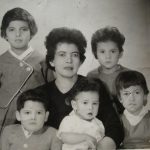
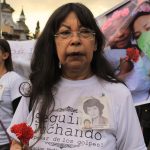

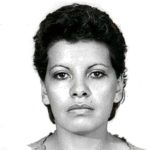


The first memory that Yanette Bautista has of her sister, Nydia Erika, is that time when in a secluded, rural place they were surprised by their father, whom they had not seen for months.
“I was about 5 years old and she was 7. The shared joy of seeing my father, who lived in Venezuela and spent much of the year away from home, is something I always remember,” says Yanette.
She also remembers exactly the last time she saw her sister: it was almost three decades later, in the cemetery of Guayabetal, a town located about 50 kilometers east of Bogotá, the capital of Colombia.
“They were pieces of bones, but among them was the crucifix that my mother had given him. That’s how I knew it was her,” says Yanette.
Three years earlier, on August 30, 1987, his sister had been disappeared by the Colombian army. Then Yanette left her life as an executive secretary to dedicate herself completely to searching for Nydia Erika.
“Women are the only ones who look for the missing. If we don’t do it, no one looks for them,” she points out.
And he adds: “It is the women who search bravely. We challenge the rules of silence and oppression imposed by those who made our loved ones disappear, and we end up defending the rights of all people. That’s why I took off my heels and changed them into work shoes to start looking for my sister.”
And in a country where it is estimated that there are 80,000 people missing due to the internal conflict, which lasted five decades, the work of Yanette and dozens of other women is almost indispensable.
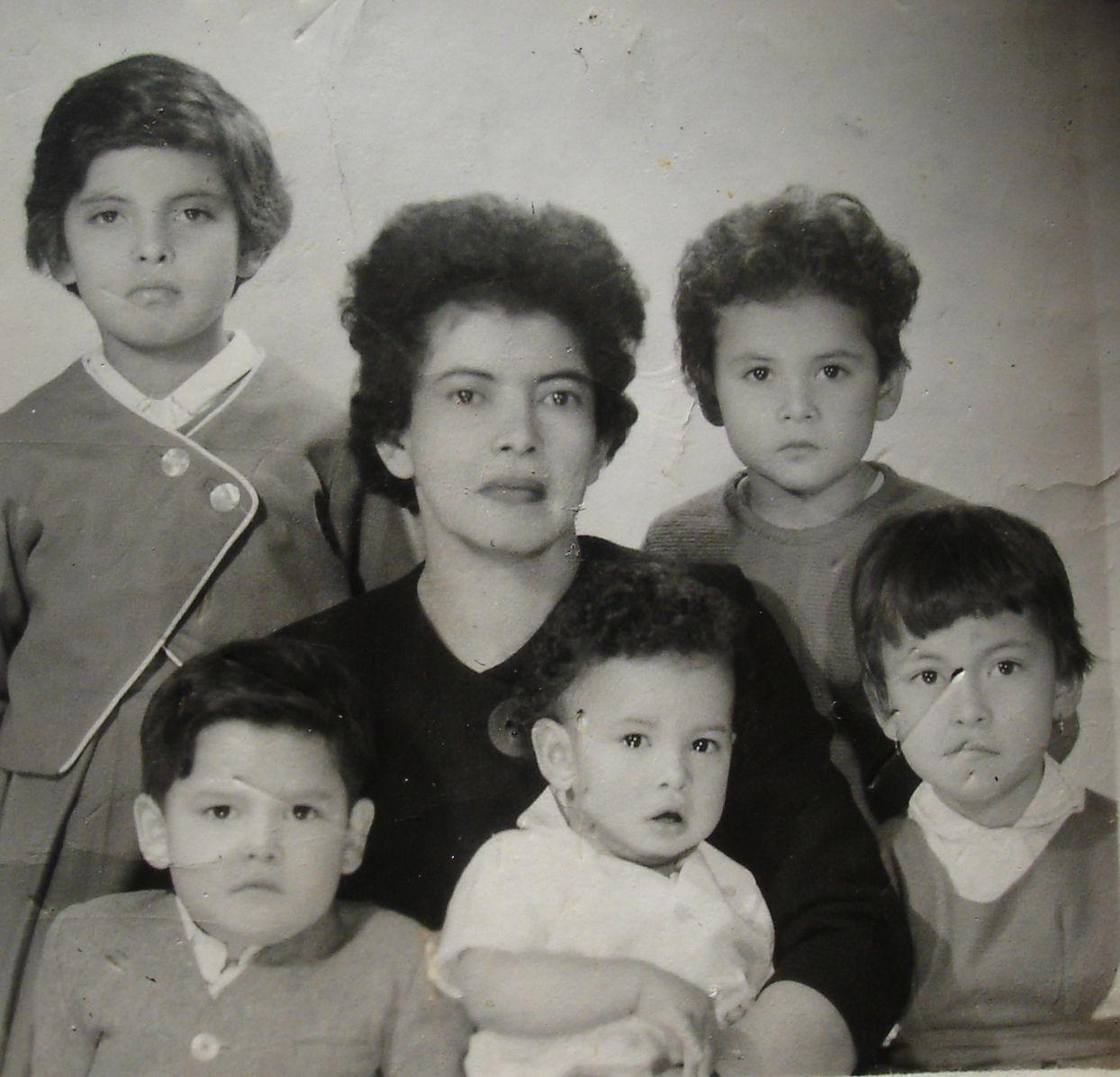
“Ever since Nydia Erika disappeared, I kept shouting: ‘They took them alive, we want them alive,’” says the sister.
“But I didn’t know that we spent all our time looking for dead people.”
Despite Yanette’s efforts and the confessions made by soldiers involved in the case, the disappearance of Nydia Erika Bautista remains unpunished.
Cuban Radio
The story of Yanette and Nydia Érica has its origins in violence. And in love.
Their father was a staunch member of the Liberal Party, which during much of the 20th century had a fierce dispute with the Conservative Party for control of power in Colombia.
The years of greatest noise were known as those of “La Violencia”, which is estimated to have left close to 100,000 dead.
“My father was liberal. And one day they went for him and shot him several times that left him badly injured,” says Yanette.
He was rushed to a nearby hospital. “My mother worked there as a nurse. “She started taking care of him and they fell in love.”
Soon, theirs became a family of six siblings living in a middle-class neighborhood in Bogotá.
“Soon we realized that Erika was my dad’s favorite,” says Yanette.
She says that her father would sit next to her to listen to the legendary Radio Cubana station, at the beginning of the Castro regime on the island.
“I think I was his favorite because he read a lot. At a party she preferred to sit and talk about politics than dance,” he says.
The political influence of her father, the books she read and the environment of the 60s shaped Nydia Erika’s militant character.
“He studied sociology at the National University. There he founded ‘El Aquelarre’, a newspaper where the social issues that plagued the country in the 70s were discussed,” he says.
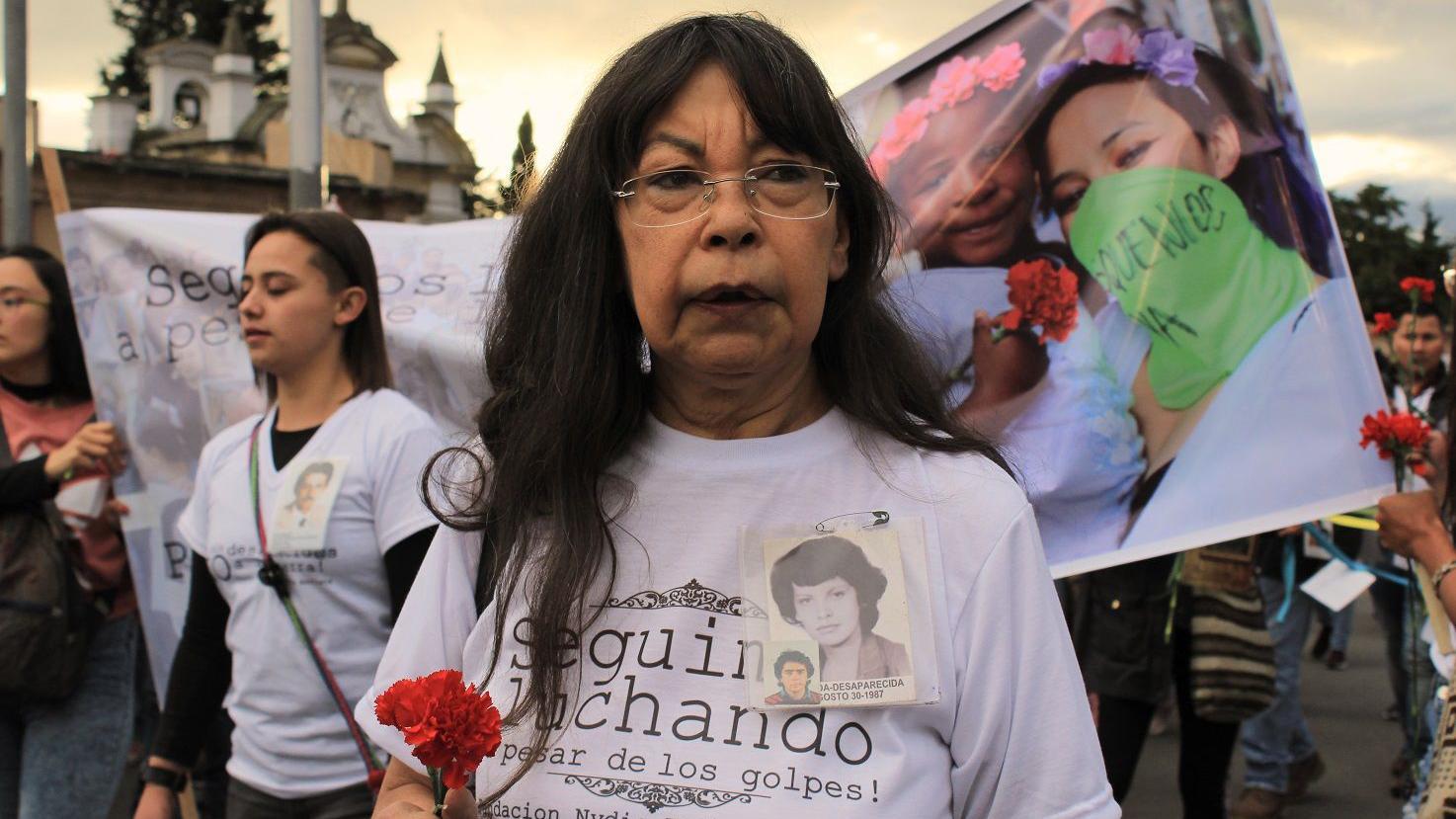
It was then that she joined the M-19 guerrilla, an urban subversive movement that had been born in the 70s. She operated between Bogotá and Cali.
“Neither my parents nor I liked that I did it. The environment in the country was not conducive to belonging to a guerrilla movement, although its role was more political than military,” notes Yanette.
The family fear became reality: in 1986, she was arrested by members of the II Brigade, based in Cali, the third city in the country.
She was tortured for several days until a group of Human Rights defenders approached the battalion facilities and demanded her release.
first communion
Yanette and Nydia Erika moved together to an apartment in the center of Bogotá with their children.
“She, despite what had happened to her, continued in the militancy. I remember that many M-19 leaders came to visit the apartment where we lived together,” says Yanette.
Despite not having religious convictions, one of Nydia Erika’s children decided to make his first communion. The chosen date was Sunday, August 30, 1987.
“That day I accompanied a friend to catch the bus and I never heard from her again,” recalls Yanette.
For hours, both her Yanette and the other family members began a frantic search to find Nydia Erika.
Hours passed. The days. The weeks.
“It didn’t appear. Nobody knew what had happened to her. We assumed it had to do with their militancy, and we asked the leaders and commanders if they knew anything. They didn’t know anything either,” he recalls.
It was then that Yanette left her job and dedicated herself to searching for her sister throughout the country.
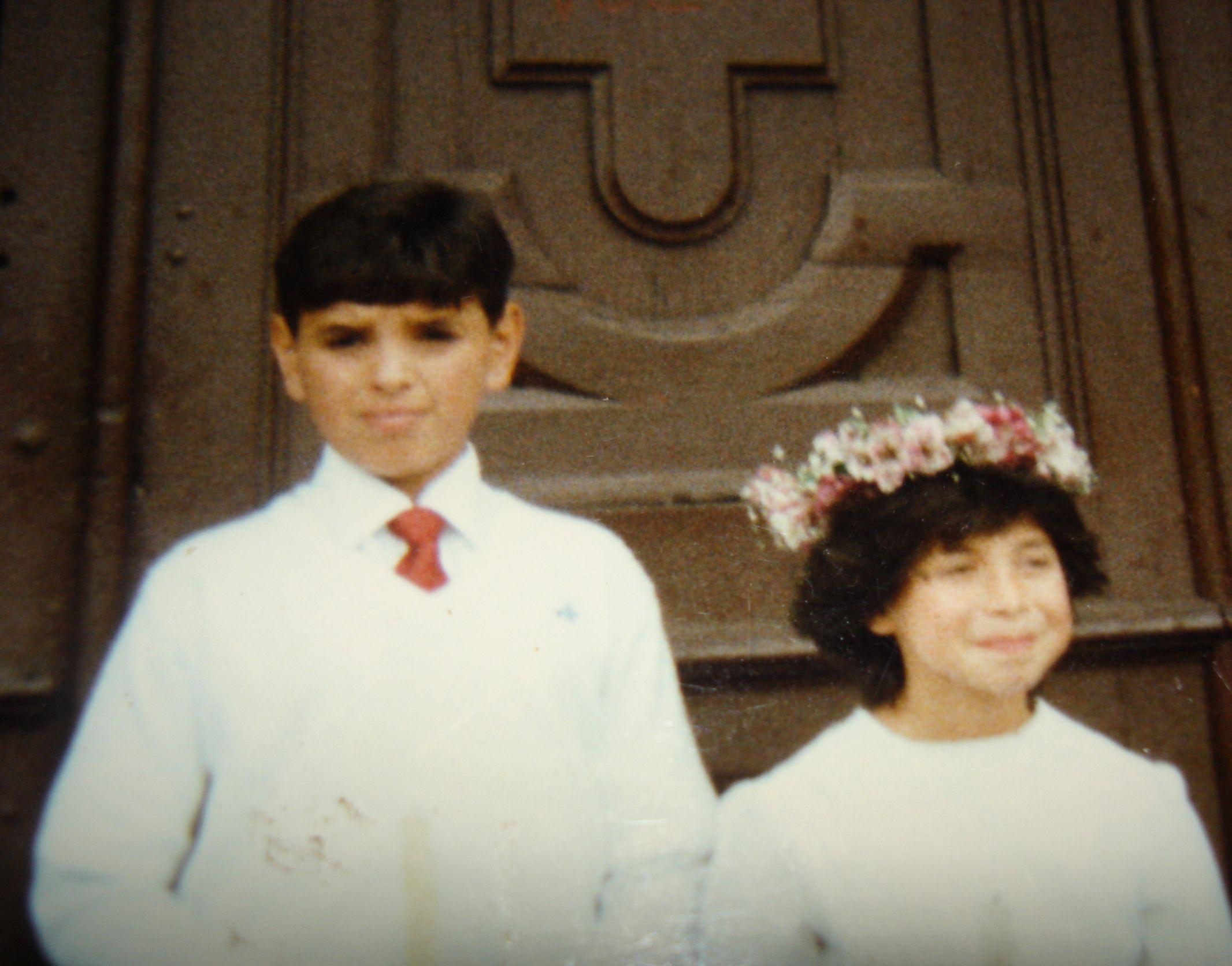
“No one gave us an answer. We went to all the government entities, but not a single clue. We were clear that this had been an action by the army, but we had no proof,” he points out.
They started calling her, threatening her. “Not to look any further, they told me.”
What did happen, Yanette details, is that a movement of people was generated, from different Colombian social organizations, who began to follow Yanette in her efforts to look for her sister.
In 1991, almost four years after the disappearance, someone spoke up: Sergeant Bernardo Alfonso Garzón, who belonged to the 20th Intelligence Battalion and knew the fate of dozens of people who were disappeared by the national army.
“He never told us anything upfront. But in a confession, he pointed out that Nydia had been left lying on the road to Guayabetal,” he says.
Then the search on the ground began. And indeed, one of the administrators of the Guayabetal cemetery remembered that three years earlier they had brought the body of a woman who matched Nydia Erika’s description.
“We did the exhumation and there I saw the crucifix that my mother had given him. He also had the clothes that we knew were his,” he recalls.
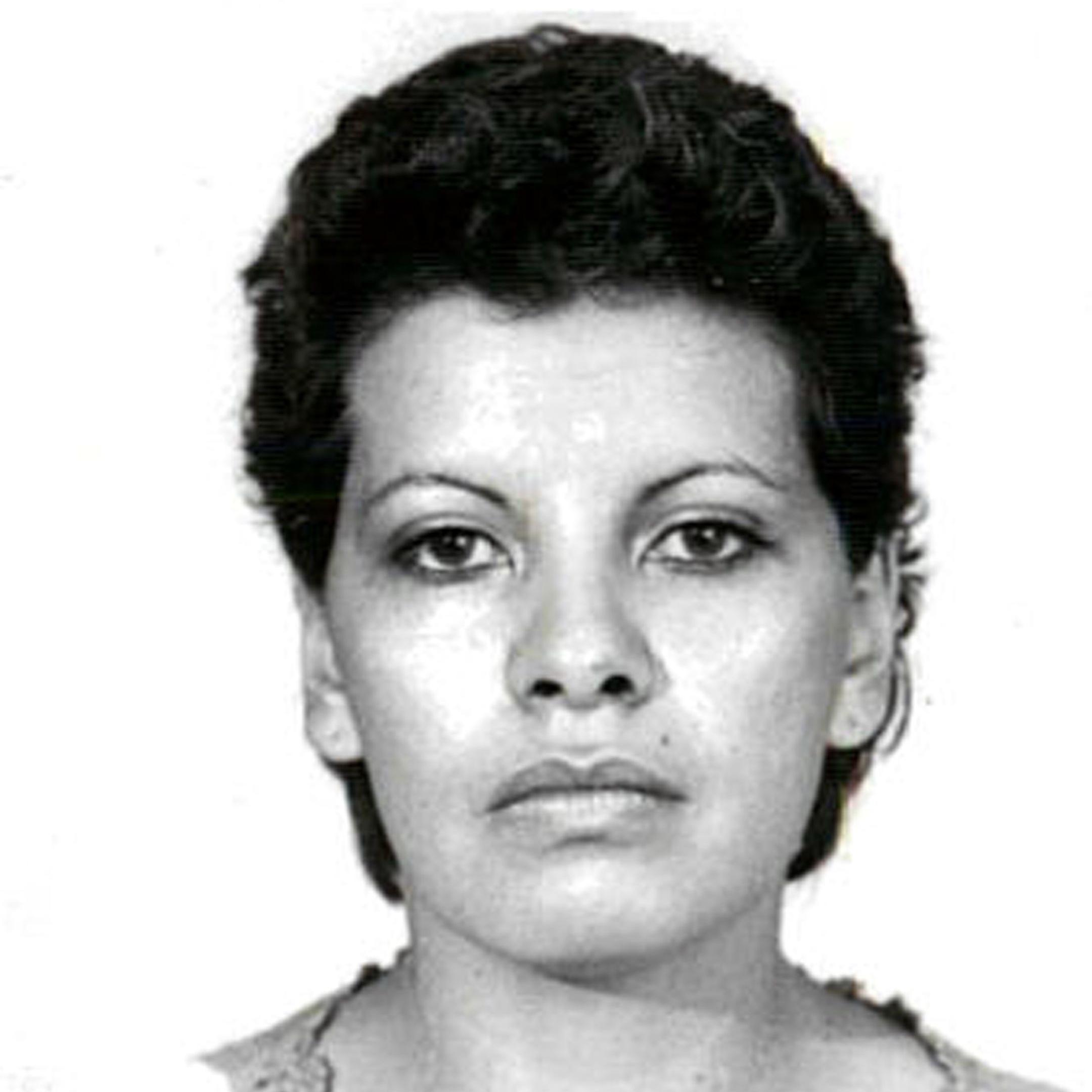
An examination would later confirm that this was the body of Nydia Erika Bautista. And 13 years later, due to allegations that those remains did not belong to Nydia Erika, the Colombian Prosecutor’s Office confirmed her identity through a DNA test.
mass grave
After several investigations, both Yanette and the family were able to find out what had happened to her.
That night of August 30, 1987, members of the army forcibly took Nydia Erika and, after subjecting her to torture, murdered her.
Later, his body was left on the road to Guayabetal, outdoors for nine days, until it was found by two people who were passing by.
“They buried her like a NN. Of course we didn’t know anything,” says Yanette.
“From that day on I stopped shouting for the missing people to be returned alive. It doesn’t make sense. Those of us who do this, searching for our missing people, only look for dead people,” he claims.
However, their fight did not end there.
“Nydia Erika was killed by people from the Colombian national army. The State killed my sister. But even though that is clear, no one has paid for his crime,” he says.
In this sense, the Colombian justice system has taken several turns. In 1995, a general and several non-commissioned officers were dismissed for the crime of disappearance and murder.
But in different judicial instances and more due to flaws in the process than due to evidence that exonerates the military, so far no conviction has been issued against the people involved in the forced disappearance of Nydia Erika.
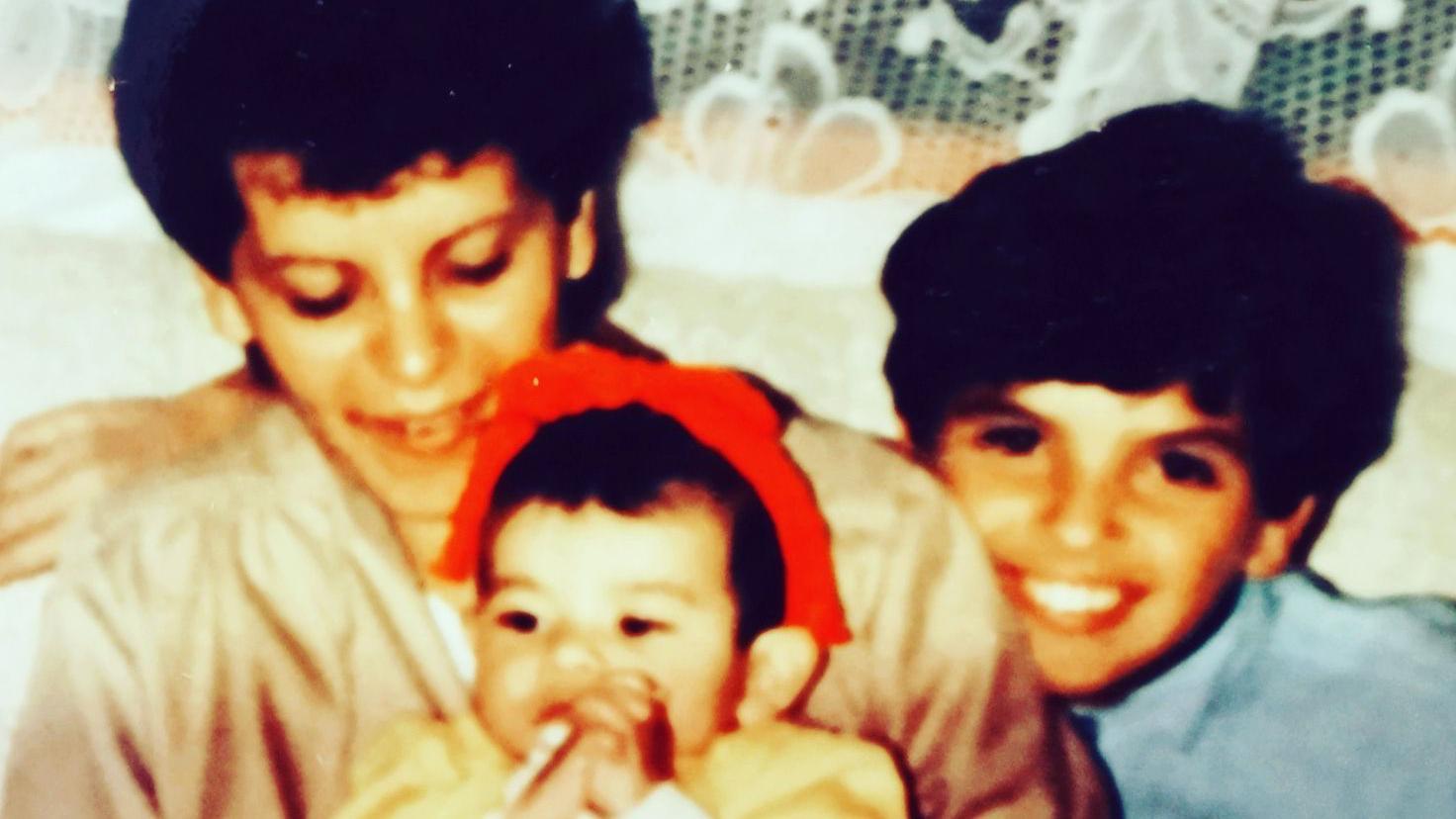
So, with the idea of continuing her fight, she decided to create the Nydia Erika Bautista Foundation, not only to continue the demand for justice for her sister but also to help other women searching for their missing people.
“We are the women who do this task. Without women, Colombia would not find its missing people. That’s why we have to support each other,” she notes.
But that has come at a cost. After starting the foundation, he had to go into exile for seven years in Germany due to the threats he received for his denunciation work in Colombia.
Now, after three decades of fighting, he says it is impossible not to remember his sister every day.
“We were father and mother to our children. They didn’t have a father and I consider their children my children and she treated mine as her own. That is a very strong bond,” he concludes.
So far, despite various condemnations by local justice, no soldier has been convicted for the death of Nydia Erika.
“We are going to continue fighting. Until the end,” Yanette promises.

Subscribe here to our new newsletter to receive a selection of our best content of the week every Friday.
And remember that you can receive notifications in our app. Download the latest version and activate them.
